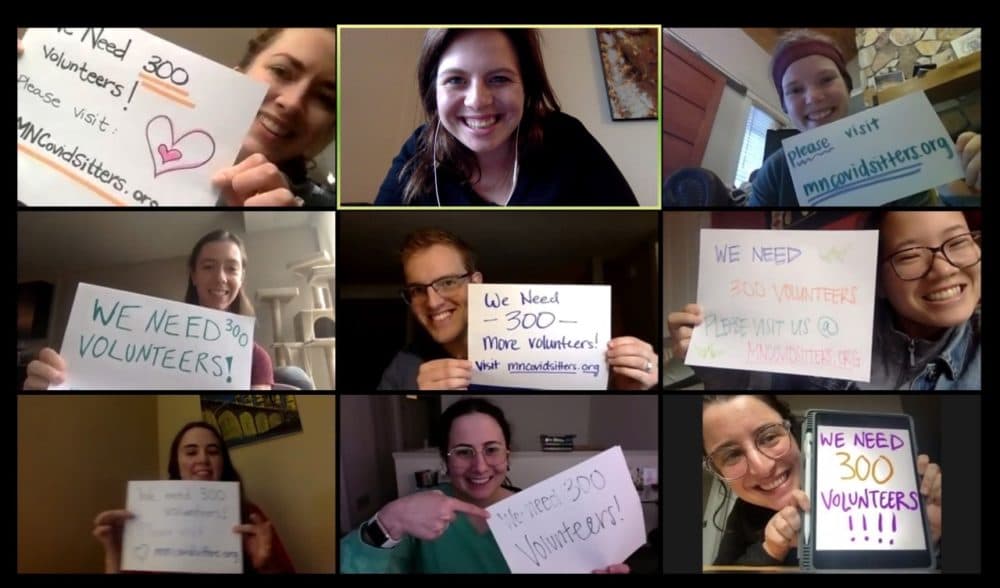Advertisement
Health Workers On The Front Lines And The People Supporting Them

During the coronavirus pandemic, simply doing your job as a health worker can mean making huge personal sacrifices. For Dr. Zahir Kanjee, a physician in Boston, that means living apart from his wife and two young children whenever he feels most at-risk for getting an infection.
"I’m here alone. I have dinner alone, and I miss my family," Kanjee said.
(Listen to this story on the Kind World episode below)
Dr. Kanjee has been treating COVID-19 patients. His wife is also a clinician who works with the elderly. He didn't want to put her and the health of her patients at risk, so he decided to temporarily stay in a separate apartment.
"Everybody is working really hard in uncertain times," Kanjee said. "That can be intellectually challenging, clinically challenging but also emotionally difficult."
As more COVID-19 patients end up in the hospital, some of those stepping up to help are retirees. Peggy Quinn-King, 66, retired in January from University Hospital in New Jersey after more than 43 years as a labor and delivery nurse. She came back after some of the department's staff was quarantined following a coronavirus exposure.
"I felt it was my duty to help if I could," said Quinn-King. "A nurse is always a nurse and I needed to help out where I was needed."
Others who can't be on the front lines are finding creative ways to help. Brianna Engelson, a fourth-year medical student at the University of Minnesota, co-founded a group called COVIDSitters.
She and more than 300 other student volunteers in Minnesota are offering to babysit the children of health workers who are struggling to find other childcare options. The volunteers also run errands and pick up groceries.
Advertisement
"Being placed on the sidelines during the pandemic was tough," Engleson said. "I went into medicine, like all of my peers, to help people."
It's not the ideal final year of medical school Engleson expected. But she says seeing her project spread to more than 50 other medical schools in a matter of two weeks has been a humbling experience.
"For all of us to see we could provide help in a really big way gave us a sense of purpose," Engleson said. "It’s been such an incredible learning process for me. I’ll be taking these skills to whatever comes next."
Whatever comes next includes a lot of uncertainty, which is why Dr. Mona Masood, a psychiatrist in greater Philadelphia, wants everyone to be mentally prepared. She’s worried about the extent of exhaustion and burnout this pandemic will cause in the medical community.
"With COVID-19, we weren’t so much afraid of the illness itself but the onslaught," Dr. Masood said. "We’re afraid in the end, even though we have the training, we’re still human."
Dr. Masood set up a hotline where she and other psychiatrists are volunteering their time to support physicians who need to talk.
"I wanted all the doctors to have this in their back pocket that no matter what, someone is available for me," Dr. Masood said. " Just to know there’s an invisible army behind me to help me through this."
Dr. Kanjee said he's grateful to everyone who's working to keep hospitals running these days, from cafeteria workers to security guards. He's also appealing to the general public for help.
"It’s an honor and a privilege to do this kind of work, and we’re lining up to do it," Dr. Kanjee said. "I just hope people will take precautions to limit the spread of the disease so the numbers stay low and we can take care of people."
The most effective precaution, he says, is to stay home.
